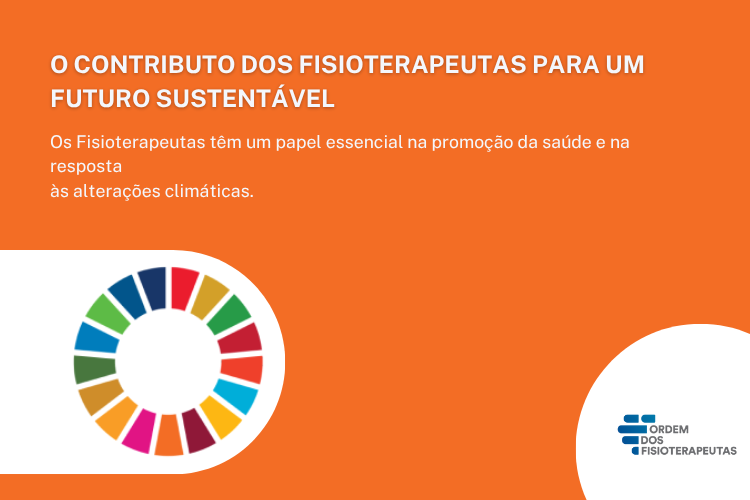The Order of Physiotherapists is launching the "Sustainability in Action" awareness campaign, highlighting the profession's contribution to mitigating climate change and promoting sustainable health practices. The campaign emphasises the importance of integrating the Sustainable Development Goals (SDGs) into professional practice and reinforces the role of physiotherapists in responding to the environmental crisis.
World Physiotherapy has published a Policy Statement that recognises the interconnection between climate change and health, warning of the devastating impacts of global warming on populations. According to the organisation, the health sector is responsible for around 4.6% of global emissions and it is therefore urgent to adopt measures to reduce its environmental footprint. As Physiotherapy is intrinsically linked to the promotion of health and well-being, it can and must take an active role in this transformation.
In this context, WP identifies various strategies by which physiotherapists can contribute to a more sustainable future. These include adopting clinical practices with a lower environmental impact, such as conscious management of the resources used and encouraging sustainable transport. Educating and sensitising users to the influence of the environment on health, as well as promoting functionality and adaptation to the conditions imposed by climate change, are also priorities.
Collaboration with other health professionals and community organisations to create environmental mitigation and adaptation policies completes the set of recommendations proposed by the WP. These measures contribute not only to the sustainability of the planet, but also to fair access to care and the resilience of health systems in the face of emerging challenges.
The Order of Physiotherapists reinforces its commitment to adopting responsible environmental practices, based on measurable targets and scientific evidence that contribute to reducing the impact of health services on the environment. The profession thus has an unavoidable role to play in building sustainable solutions that preserve the health of people and the planet.

